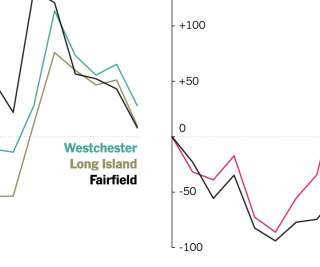What to expect from the 2021 housing market
Housing Wire
DECEMBER 28, 2020
Although I had pockets of joy in 2020, these moments were subsumed in a haze of stress, uncertainty and fear for our country. And, at times, I have found it difficult to keep these emotions from clouding my economic thinking. But despite all the sorrow and frustrations of this year, I have found solace in the immortal world of math, facts and data. From this stronghold I have been able to see past the chaos and view the economy and the future of the housing market through the lens of my core eco

















Let's personalize your content